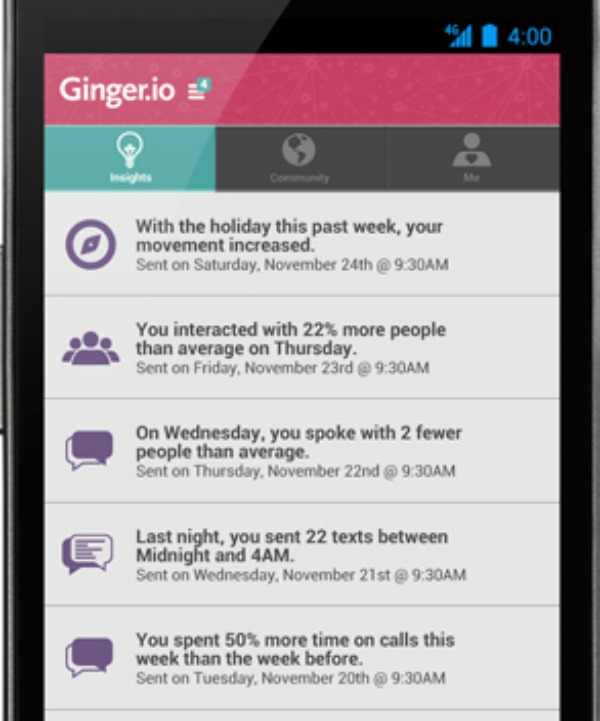Ginger.io is a mental health app used to collect data and prompt early intervention of symptomatic patients to prevent relapses. By passively analyzing mobile data, the app can detect if a patient with mental illness is acting symptomatic.
Symptoms may include lethargy (decreased movement captured by motion sensors) or infrequent texts (captured by the message log). If the app detects an unusual pattern, it sends text messages to the patient and his or her health care provider, who can monitor and intervene if necessary.
Ginger.io has also been used in research at UC San Francisco, to look at the role behavioral data plays in heart disease. Forsyth Medical Center in North Carolina used it to study how data can help discern behavioral differences in diabetes patients. A UC Davis trial used the app as a low cost method of monitoring youth with psychosis.
Users complete a survey about their conditions, treatment, and health care provider. Ginger.io then begins passively collecting millions of interaction and location data points. Motion data is captured by a phone’s accelerometers. GPS pinpoints where a person visits. It also logs the duration and frequency of phone calls and texting patterns.
For a few days, the app records a person’s normal patterns. Then algorithms look for significant deviations. If any are detected, the app alerts the user. A text may say “On Wednesday, you spoke with two fewer people” (signaling isolation), or “You traveled 50 percent less on Thursday” (signaling lethargy).
If the algorithms detect enough deviations to determine that the patient is behaving inconsistently, Ginger.io alerts the health care provider. The provider may see a text explaining that the patient is increasingly acting isolated or lethargic. Or they may see a green box next to the patient’s name turn to red, signaling a need for intervention.
